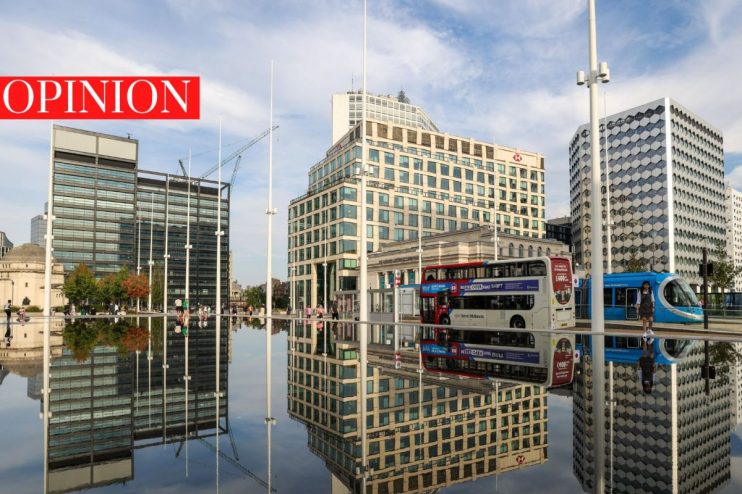Birmingham is a city on the cusp, but its economy is at a crossroads moment

Birmingham has become a powerhouse, but the council has been too busy with internal squabbling to make sure all of its residents are part of the transformation, writes Adam Hawksbee
I moved to Birmingham four years ago, one of a large number of young (or youngish, in my case) inward migrants taking up new jobs in the city. The council’s sudden declaration of bankruptcy means the place I’ve grown to love has hit the headlines for all the wrong reasons. But nobody should mistake the council’s failure for the city’s failure. Birmingham will bounce back, but only if it signals that it is still open for business.
One of my favourite Birmingham pastimes is hosting friends who have never previously visited the city. Over a few hours, their preconceptions melt away. A long walk in Sutton Park, microbreweries in Stirchley, curry in Sparkbrook or a Sunday roast in a red-bricked Jewellery Quarter pub always prompts a barrage of compliments delivered with surprised upward inflections. Attendees at political party conferences in the city can’t help themselves but comment on the area’s transformation in the last decade.
These are the trappings of the city’s economic success. After a Europe-wide search, Goldman Sachs recently opened their second headquarters in Birmingham, joining HSBC and Deutsche Bank. Peaky Blinders writer Stephen Knight is opening a new film studio in Digbeth and the BBC are moving the Masterchef franchise nearby to the former Typhoo Tea Factory. Thousands of university students contribute to making the city the youngest in Europe and it has secured the most foreign direct investment outside London every year since 2017. Birmingham also benefits from prosperous neighbours, including Solihull which hosts fitness wear unicorn Gymshark, founded by Bromsgrove-born and Aston University-educated Ben Francis.
But there are two Birminghams. A short walk from the city centre are neighbourhoods experiencing crushing deprivation. Four of the ten constituencies in the UK with the highest level of child poverty are in Birmingham. Crime and antisocial behaviour are rife in some areas, rates of unemployment are persistently high and health outcomes among the city’s ethnic minority communities are poor. For many young people, local jobs at Goldman Sachs feel more like an insult than an aspiration.
The UK’s second city is moving at two very different speeds – the challenge is keeping its foot on the accelerator to attract investment while making sure residents aren’t left behind. On this front, the people of Birmingham have been repeatedly let down by central governments who have overlooked the city’s potential and underfunded its institutions. And by the local council who, for over a decade, have been consumed by internal battles and pet projects instead of prioritising the job at hand. Sir Keir Starmer’s forced replacement of the council leader only a few months ago implicitly shows that Labour top brass agree the local leadership was not good enough.
Ministers will focus in the coming days and weeks on securing the delivery of core services across the city. The local authority covers the largest population of any municipal government in Europe – delivering social care and keeping the streets clean is a mammoth task. A bold government would use this moment to radically overhaul service delivery – tackling entrenched trade union interest and digitising antiquated processes. During this period attention must not slip from Birmingham’s economy. Investors will pause before purchasing a new site or exploring a new location for their firm. Reassurance must be swift.
Andy Street, the region’s metro mayor, is best placed to help Birmingham bounce back. To declare an interest – I served as his policy advisor for several years. But it’s hard to deny that, as a former chief executive of John Lewis, he has the private sector’s confidence. While councillors in Birmingham are steadying the ship, they should position Andy as the area’s economic ambassador – temporarily transferring responsibilities for regeneration and investment to him, as opposed to any imposed commissioners from Whitehall.
This could still mark the beginning of Birmingham’s golden decade. When HS2 is (finally) completed, it will further transform the city’s prospects – even now, companies are relocating and hiring in anticipation of its connections. What the city needs to realise this opportunity is better political leadership to steward the city’s growth, support its communities, and stand up to ministers. The city might appear on the back foot, but it’s taught me one lesson above others: it’s always a bad idea to bet against Birmingham.